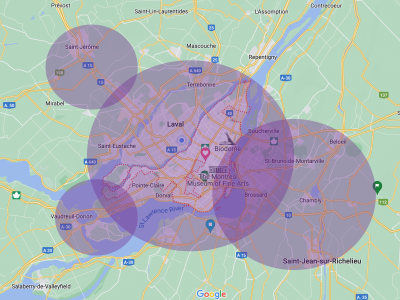Moving is one of the best things you can do for your body.
The benefits are almost endless, such as improved insulin resistance, better cardiovascular health, good muscles and stronger bones, and improved cognition, mood and coordination.
The list goes on, but exercise also has a profound, but much less appreciated, effect on our immunity.
You probably think that changes to your immune system are not such essential things because, for a large part of the population, the desired results are usually fat loss and muscle gain.
However, your immune system is much more important than your appearance.
Your immune system
Not only does your immune system fight infection, but it also plays an essential role in the incidence of lifestyle-related illnesses. It is responsible for healing and repairing damage and your primary cancer surveillance system.
The immune system speaks a common biochemical language with our entire body system, including the nervous and endocrine systems, and communicates via shared neurotransmitters, hormones, and chemical mediators in the body.
The immune system is an integral part of all physiological processes, even reproduction. Exercise and massage profoundly impact the immune system’s ability to carry out its many tasks. And this foundation of health and wellness begins with the lymphatic system.
Important points of immunity
The role of movement in your immune health begins with the lymphatic system, which is your immune system’s circulatory system, a network of vessels and nodes that spans your entire body.
It is essential for good health and for your immune system to function correctly.
While we tend to focus more on the circulatory system, the lymphatics have become somewhat neglected. The blood and lymphatic systems share many functional, structural, and anatomical similarities, but the lymphatic systems are unique.
Unlike the blood system, which is a closed loop with the heart actively pumping blood to oxygenate our tissues, lymphatic vessels are open. The movement of the lymph is governed by our daily rhythmic muscle movements propelling the fluid along the network.
Lymphatic fluid contains our immune cells, permeates every corner of our body, and mixes with brain and cerebrospinal fluid. The movement of lymphatic fluid through lymphatic vessels carries immune cells throughout the body, patrolling all the remote corners of our body, watching for anything that goes wrong.
Lymph vessels also bring immune cells together in centers of immune activity called lymph nodes. Monitoring our bodies for infections and potentially cancerous cells is a critical daily task of immune cells.
If the lymphatic flow stops or becomes impaired, this vital immune surveillance and defence function may also be compromised.
The danger of a sedentary lifestyle
Like any system in the body, problems can arise when the daily flow of lymph vessels is disrupted. We know being sedentary is a shortcut to poor immune function, leaving you open to infections.
Being sedentary can increase your risk of having an unhealthy weight, and studies have shown that obesity significantly decreases lymphatic function. Keeping your body moving, regardless of weight loss, decreases inflammatory lymphatic markers and improves lymphatic function by reversing some unhealthy changes accumulated by sedentary behaviour.
We now know that in people with type 2 diabetes, the walls of the lymphatic system become permeable, which interferes with their ability to do their jobs properly and puts them at risk for infections.
This dysfunction can also contribute to high blood pressure and stimulate the growth of fat cells, thereby altering your body composition from its healthy set point.
Nutrition and digestion
Diet can also impact our lymphatics through salt imbalance, poor digestion, and an imbalanced gut microbiome, all of which impact the lymphatics and intimately support our digestion and nutrient absorption.
Besides being the primary operating system of our immunity, the lymphatic system also maintains water balance, removes cellular waste, and absorbs essential fats and nutrients from our digestive tract.
Immune defences and the effects of stress
Inflammation is a normal and vital part of our immune defense against infection. Inflammation causes the lymphatic network to expand and its ability to transport immune cells weakens, leaving us vulnerable to disease. It also encourages the lymphatic vessels to deposit fatty tissue at the site of inflammation. Accumulation of fatty tissue and infiltration of macrophages are associated with the progression of inflammation.
Stress causes lymphatic vessels to remodel and impairs proper tissue drainage, negatively affecting your health. Chronic exposure to large surges of the stress hormone cortisol can cause lymphoid tissue to atrophy.
Consistently high levels of the stress hormones cortisol have been linked to suppressed immune system function and reduced flow of antibodies the body desperately needs to fight off foreign invaders. In the hours following a stressful event, cortisol reduces the amount of circulating immune cells, pausing the generation of new ones.
Scientists have now shown that lymphatic vessels act as an irrigation system for the brain, with the immune system removing toxins from the cerebrospinal fluid bathing our brain through the lymphatic vessels. This activity eliminates metabolic wastes related to cognition, memory and cognitive decline.
It seems to be strongly influenced by physical activity and is particularly active during the restorative phases.
What are the main functions of the lymphatic system?
So we know from research that exercise makes muscles contract and pushes lymph fluid through the body.
It helps the lymphatics to play multifaceted roles in the body, which can be grouped into four main areas:
1. A super circulatory highway for the immune system: This watchdog role allows immune cells to watch for infections or potentially cancerous cells. When the lymphatic system becomes congested due to genetic issues, acute stress, a sedentary lifestyle, or poor digestion, the lymphatic system’s ability to circulate may be affected.
2. Transport fats and vitamins from the intestine to all body areas: When the lymph vessels are not flowing, we can feel our energy levels drop. Fat-soluble vitamins are not carried from the digestive tract throughout our body.
3. Detoxification channel for cellular metabolites and low intensity inflammation: Waste products from the day-to-day functioning of our body’s cells, toxic byproducts of pesticides and environmental pollutants that are too large to enter the bloodstream all end up being collected in the larger lymphatic vessels that line the intestines and are sent to the liver for treatment.
4. Maintaining the water balance of the whole body: As the blood carries nutrients and oxygen throughout the body, the fluid diffuses into our tissues. One of the main functions of the lymphatic system is to collect this fluid and return it to the bloodstream to maintain overall fluid balance. Swelling, known as lymphedema, occurs when this fluid collects in a particular area of our body. Over time, persistent lymphedema can lead to complications that affect the function of that part of the body, such as inflammation, fibrosis, and fatty tissue deposition.
How to activate your lymphatic system?
THE MOVEMENT OF THE BODY
As knowledge of our lymphatic system grows, interest in combining therapeutic techniques and bodily movements also increases, although ,researchers have made no connection between the movements for many years. Of the body and the lymphatic system.
We now know that movement is vital for the health of our lymphatics. The forces of movement in our muscles help maintain healthy lymphatic flow, and exercise is a proven and safe way to treat swelling associated with lymphatics. An essential regulator of lymphatic flow is nitric oxide, a molecule that alleviates inflammation’s damaging effects and regulates our blood pressure.
Exercise is the most potent activator in nitric oxide production. 20-30 minutes of aerobic exercise increase nitric oxide levels and positively affects lymphatic flow, primarily if you breathe through your nose.
DEEP BREATHING
Just as the heart is the pump of the circulatory system, the diaphragm can help pump the lymphatic system. Deep diaphragmatic breathing is the most important facilitator of lymphatic function.
Combined with gentle stretching, this can also be a good way to manage stress on your own and relieve tension at the end of the day.
DIET
Vegetables, especially green leafy vegetables and beets, contain nitrate, which can be converted in the body to nitric oxide, which regulates lymphatic flow.
Many plant foods, including fruits, chocolate, and red wine, also contain polyphenols and other compounds that can increase the production of nitric oxide.
Foods high in protein, such as nuts, beans, seeds, turkey, seafood, and dairy, provide arginine, an amino acid used by cells to make nitric oxide.
BRUSHING DRY SKIN
Brushing dry skin naturally exfoliates the skin to remove dead skin cells and oil, dirt and residue from the pores that contribute to dull, dry and congested skin.
Light pressure and movement of the bristles can also help stimulate lymphatic flow to detoxify the body gently. Proponents of dry skin brushing also claim that it helps reduce cellulite by improving blood flow to the skin.
To brush dry skin, start with your feet and brush upward with long, gentle strokes, always brushing toward the center of your body. Do this along your legs and arms, then gently brush your stomach and back.
LYMPHATIC MASSAGE
While lymphatic massage techniques can vary, they typically involve the practitioner manipulating the body to drain lymph fluid physically, producing tangible, evidence-based results.
Often referred to as the lymphatic drainage massage, it was developed to treat lymphedema. A recent study showed that a combination of lymphatic drainage massage and exercise was beneficial in the treatmtreatings involving blocked lymphatics after surgery.
Massage also alleviates chronic inflammation and helps recovery after injury.
HYDRATION
Dehydration is a common cause of lymphatic congestion.
Lymph becomes thicker and less mobile when dehydrated, so be sure to drink whenever you are thirsty.
Choose massage therapists who are attentive to your situation.
If you want a unique massage to relax or free yourself from your pain, discomfort, pain or suffering, isn’t it wise and sensible to turn to massage therapists who know what you are doing? Live?








